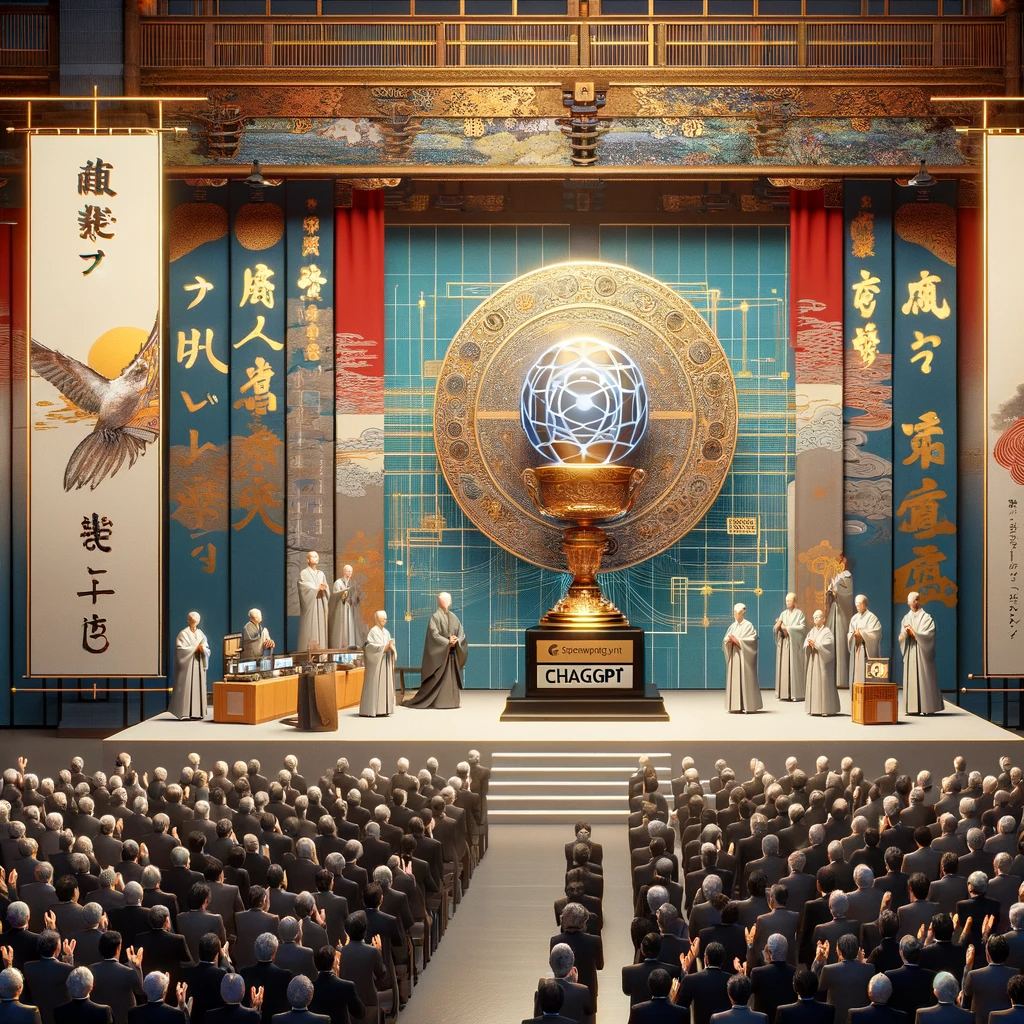Rie Kudan, a 33-year-old Japanese author, clinched the coveted Akutagawa Prize for her science fiction novel, “Tokyo-to Dojo-to” (Tokyo Sympathy Tower), which delves into the intricacies of a high-rise prison tower with a focus on artificial intelligence (AI). The judges hailed Kudan’s work as “almost flawless,” marking a significant achievement in her literary career.
The revelation of AI involvement in an acceptance speech
In a surprising turn of events during her acceptance speech, Kudan openly admitted that a portion of her award-winning novel was authored with the assistance of ChatGPT, a generative AI tool. She disclosed that approximately 5% of the entire text was directly generated by ChatGPT, emphasizing the collaboration between human creativity and artificial intelligence.
I would like to work well with them to express my creativity,” Kudan stated, acknowledging the synergy between her creative process and the capabilities of AI.
AI integration is not a concern for the award committee
Contrary to potential concerns about the use of AI in literary creation, Keiichiro Hirano, a committee member, and writer, took to social media to clarify that the selection committee did not perceive Kudan’s incorporation of AI as problematic. He asserted that Kudan’s mention of generative AI in her work was transparent, and upon reading the novel, it becomes apparent that the AI’s role was acknowledged within the narrative itself.
It seems that the story that Rie Kudan’s award-winning work was written using generative AI is misunderstood… If you read it, you will see that the generative AI was mentioned in the work. There will be problems with that kind of usage in the future, but that is not the case with Tokyo Sympathy Tower,” Hirano affirmed, dispelling potential doubts about the integrity of the literary prize.
Artistic collaboration with AI in the spotlight
Rie Kudan’s revelation adds to a growing trend of artists embracing AI as a collaborative tool in their creative processes. The intersection of human creativity and artificial intelligence has sparked discussions in various artistic fields, challenging traditional notions of authorship and artistic expression.
Kudan admitted to consulting ChatGPT in her personal life, using the AI as a sounding board for problems she felt unable to discuss with others. Reflecting on this collaboration, she mentioned instances where the AI’s responses deviated from her expectations, leading her to incorporate those unexpected twists into the lines of the main character in her novel.
Akutagawa prize in a historical perspective
The Akutagawa Prize, established in 1935, holds a prominent position as Japan’s foremost literary award, recognizing emerging writers for their outstanding contributions to literature. Awarded semi-annually, the prize committee aims to highlight and celebrate literary excellence in contemporary Japanese literature.
Kudan’s success with Tokyo Sympathy Tower underscores the evolving landscape of literature, where the integration of AI technologies is not only accepted but also acknowledged as a valuable tool in the creative process.
Rie Kudan’s Akutagawa Prize-winning novel, Tokyo Sympathy Tower, stands as a testament to the evolving dynamics between human creativity and artificial intelligence in the realm of literature. The author’s candid admission of using ChatGPT for a portion of her work has sparked conversations about the role of AI in artistic endeavors. The Akutagawa Prize committee’s endorsement of this integration signals a broader acceptance of AI as a collaborative tool in the creative process. As the boundaries between human and AI contributions continue to blur, Kudan’s achievement marks a milestone in the ongoing exploration of the intersection between technology and art in the literary world.





